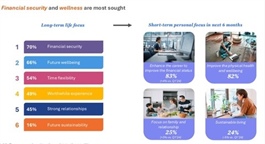Foreign investment room delivers mixed picture at banks
Foreign investment room delivers mixed picture at banks
While the foreign ownership limit at several top-tier banks has almost reached its cap with a desire for further expansion, other banks have significant room for international investment.

Among the 27 listed commercial banks, 14 have foreign ownership rates exceeding 15 per cent of their charter capital.
Many banks have already maxed out or are close to maxing out their foreign investment room, including ACB, TPBank, ABBank, MBBank, Techcombank, VIB, and VPBank.
In contrast to banks that have reached the maximum foreign ownership cap of 30 per cent, some have opted to reserve capacity for future capital raising.
For instance, in early July, VIB locked its foreign room at 4.99 per cent. Previously, the bank capped foreign ownership at 20.5 per cent, which was consistently fully utilised.
Southern lender OCB also locked its foreign room at 22 per cent. In mid-2021, OCB sold 15 per cent of its shares to its Japanese partner, Aozora Bank.
Whether banks have reached their maximum foreign caps or still have room, most hope for an increase in the foreign ownership limit to create more space for future capital-raising initiatives
Meanwhile, HDBank unveiled that it has reserved about 10 per cent of its foreign room for potential capital-raising initiatives, including selling shares to strategic investors amid favourable market conditions and when suitable partners are found.
At present, the Ho Chi Minh City-based lender has garnered interest from diverse potential partners in South Korea, Europe, and the US.
Selecting suitable partners for capital issuance and attracting strategic shareholders aligns with the bank’s objective of enhancing its financial capacity to support growth, ensuring capital safety, and maintaining liquidity targets.
In contrast to top-tier banks, many other banks have very low foreign investor ownership rates or even fully available foreign room. These include NCB, Eximbank, SHB, LienVietPostBank, SeABank, VietCapital Bank, Nam A Bank, and SaigonBank.
For Eximbank, after strategic shareholder Sumitomo Mitsui Banking Corporation (SMBC) fully divested its stake, foreign ownership in the bank dropped to less than 10 per cent of its charter capital. Eximbank currently has no plans to sell additional shares to foreign investors.
Nam A Bank is in the process of negotiating with foreign partners to find suitable investors. The bank plans to utilise its foreign room cap of up to 20 per cent to attract additional capital.
Whether banks have reached their maximum foreign caps or still have room, most hope for an increase in the foreign ownership limit to create more space for future capital-raising initiatives, potentially through sales to foreign shareholders.
According to a draft amendment to the law on foreign investors purchasing shares in Vietnamese credit institutions, foreign room for banks involved in mandatory transfers of weak credit institutions may be raised to 49 per cent, instead of the current 30 per cent.
If approved, this would mean that banks participating in restructuring weak credit institutions, including Vietcombank, MBBank, HDBank, and VPBank, may see their foreign ownership limits increased to 49 per cent of their charter capital.
The amendment, however, requires the state to hold at least 65 per cent of the total voting shares in state-owned commercial banks during the 2021-2025 period.
Additionally, under the Vietnam-EU Free Trade Agreement, Vietnam is committed to considering allowing two European credit institutions to own up to 49 per cent of the charter capital in two local banks within five years from the agreement's enforcement on August 1, 2020.
This agreement does not apply to state-owned banks, including BIDV, VietinBank, Vietcombank, and Agribank.
Nguyen Quoc Hung, secretary general of Vietnam Banks Association, stated that increasing the foreign ownership limit at Vietnamese banks would lure in foreign capital, help banks enhance their capital base, improve financial and competitive capacity, accelerate bad debt resolution, and drive socioeconomic development.
Analysts believe that foreign investment in Vietnamese banks is beneficial for the domestic banking sector.
The involvement of foreign investors has brought positive changes in finance, technology, management, and governance, aligning Vietnamese credit institutions more closely with international practices and standards.
Raising the foreign ownership limit in banks may prove necessary. Although the financial health of the local banking system has improved, the system remains undercapitalised overall, with a capital adequacy ratio significantly lower than the regional average.



























